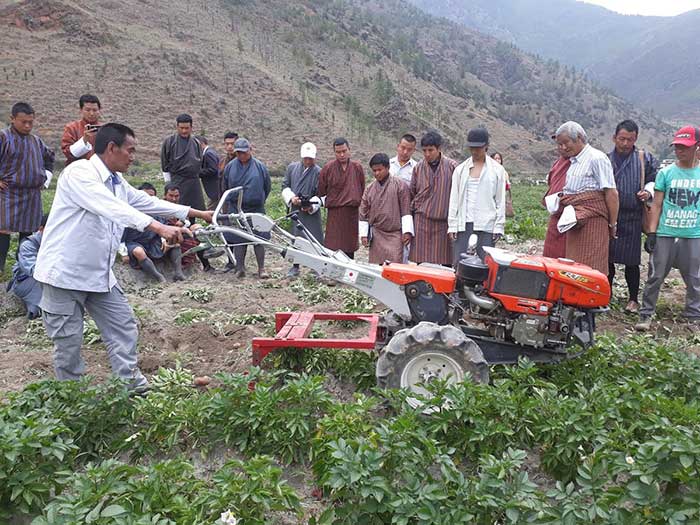Agriculture is on the verge of a glorious revolution and has the potential to put economy back on track. The ongoing crisis has encouraged the agriculture sector to reflect, reveal and reorient its strategies. Just as government has redirected its priorities, sector needs to take strategic, practical, bold and informed decisions.
It is encouraging and reassuring to witness efforts being made to bring back the fallow land to cultivation. These days, individual and groups tilling vacant plots in and around Thimphu city is a common sight. This shows we all can together unlock the potential and there is an opportunity for us to drive agriculture-led development pathway.
The prevailing belief is that Bhutan cannot stop imports altogether but we also know that we should focus on our comparative advantage and differentiation. We must also be mindful of challenges associated with achieving food self-sufficiency. However, we can certainly capitalise on our resources to meet our demands for selected commodities such as cereals, vegetables, meats, dairy, etc. Self-sufficiency in these areas is going to be a strategic leap towards achieving national food security.
The overarching vision of 12th Plan for agriculture sector is inclusive and sustainable development to ensure food self-sufficiency and economic self-reliance, which is underpinned by the principles of leaving no one behind, narrowing the gap between the rich and poor. A growing emphasis is given to accelerate agribusiness and commercialisation without compromising inclusiveness and sustainability aspects.
The government’s policy of reaching out to young people seems to be succeeding as evidenced by increasing number of youth taking interest in agriculture. Production-driven agricultural plans are failing to create jobs for young people. This is largely because farming is entrenched with negative perception resulting from the prevailing realities and challenges. That is why key entry point for transition is to transform agriculture into a modern, smart and professionally managed business occupation.
Such transformations should be fuelled by an increased investment in science, technology, and innovation. It may require deploying institutional mechanism and necessary support to our farmers such as market access, storage, logistics, etc. The government has already ventured into these and is fast tracking. Making farming sector attractive is going to be successful only with the parallel attention and promotion of agri-processing, manufacturing, efficient supply chain, enterprises and services, among others.
The reform to transform farming sector has to be leveraged by clear resource mobilisation and investment strategy with special attention to implementation based on area based approach, incentivising farming, infrastructure, inputs supplies, water management, logistics, and organised markets—all as a package. Likewise, investment in agriculture should be given an increased impetus accompanied by dynamic policies, supportive environment and fast tracking of diversification and agribusiness results.
Royal Monetary Authority’s new loan policy and targeted micro-finance for farmers and youth is going to reinforce access to finance. Introduction of CSI Banks with much lesser interest rates has given fresh hopes to our farmers and agriculture enthusiasts.
Agriculture sector in Bhutan largely characterised by fragile mountain ecosystem is bound to face multifaceted challenges due to factors such as physical, social, economic and environmental. The fallout from Covid-19 has pushed other economic sectors spiraling down for which the government and sectors are ardently working hard to reshape it to normalcy.
Challenges besides, we have an opportunity to propel agricultural transformation by revitalising rural agricultural landscape with befitting modification and readjustment. It is easier said than done but with better coordination among agencies, centre and local governments agriculture sector can transcend beyond expectation in times to come. Partnership, commitment and collaborative working will be required to deliver the expected outcomes.
Contributed by Sangay Chophel
Thimphu
Disclaimer: The views expressed in this article are authors own.


